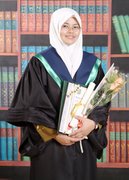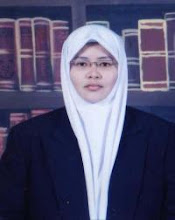
Niche areas identified
UNIVERSITI Kebangsaan Malaysia (UKM) has identified six niche areas to focus on.
They are self-identity, development of the environment, renewable energy, health technology and medicine, climate change as well as nano technology and material science.
PROF SHARIFAH HAPSAH: The niches will showcase the university's strengths.
Its vice-chancellor, Prof Datuk Dr Sharifah Hapsah Syed Hasan Shahabudin, says these niches will showcase the university's strengths in existing and new areas.
“The niches have been carefully chosen to ensure all staff are able to contribute as we do not want anyone to be left out.
“Even if they are not directly involved, they can contribute to the development of policies which can affect the whole community,” she says in her New Year message to staff last week.
The identification of these areas, she adds, does not mean that there will be no academic freedom.
“There will be space for new ideas to grow.
“Many other fields at the university's faculties, institutes and centres of excellence such as Information Technology and Communications, Biotechnology and Lifelong Learning are cross cutting and it is important that these are strengthened and developed with the niches.”
Prof Sharifah Hapsah says UKM is able to become a better research university if it harnesses its strengths in the niches selected.
Self-identity is important as the history of the university's establishment resulted from the struggle to have an institution that places importance on Bahasa Malaysia, she explains.
“The name of the university itself which has 'kebangsaan' means it must aim for a national philosophy, vision, mission and objective.
“In a globalised world, the university's history and national branding enables UKM to build a national identity and sovereignty,” she adds.
As a national university with students representing the many groups in the country, Prof Sharifah Hapsah feels it must also be the pioneer in national integration and self-identity.
For the development of the environment, she notes that UKM has successfully integrated its multi-disciplinary research in areas such as eco-tourism and services that improve the quality of life as well as care for the environment.
Likewise, she adds, there is a need for the country to focus on renewable energy.
“This is critical to the environment and the future of humankind,” she says, adding that researchers from several faculties are focusing on studying energy.
On health technology and medicine, she says the focus will be on products, processes, strategies and policies, which help in diagnosis and treatments.
“We already have centres of excellence within the UKM Hospital (HUKM) and several faculties such as Medicine and Allied Health Sciences which are carrying out research on cancer, stem cells and anti-oxidants.”
On climate change, Prof Sharifah Hapsah says the university's strengths lie in areas such as Environmental Science, Space Science and Marine Science.
Nanotechnology and Material Science are cutting edge fields at the university through several departments and faculties.
These include the Microelectronic and Nanotechnology Institute and the Faculty of Engineering, which have good networking with other world-renowned institutions.
“This niche can bring together researchers from various disciplines,” she notes.
As one of four research universities, UKM must concentrate on education, research and expert services to improve human capital and come up with effective innovations for the community.
“In the move to become a prestigious research university based on its niches, we must continually improve our delivery system,” she adds. – By KAREN CHAPMAN


No comments:
Post a Comment